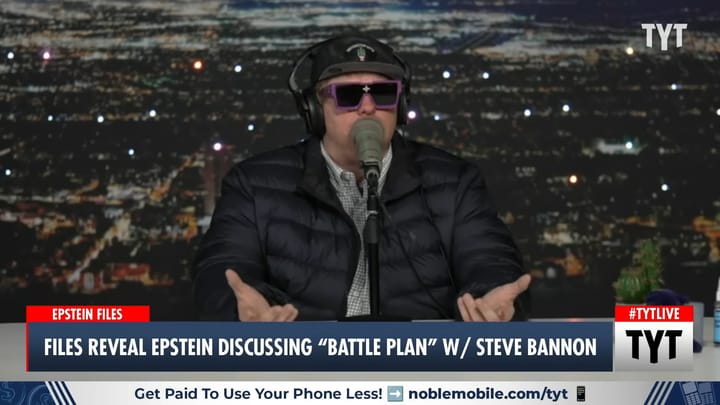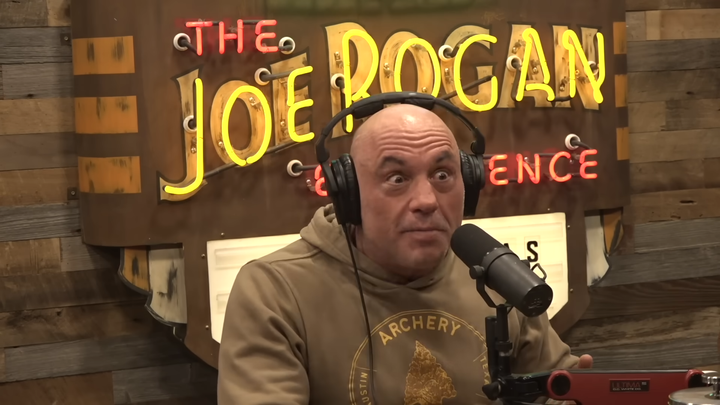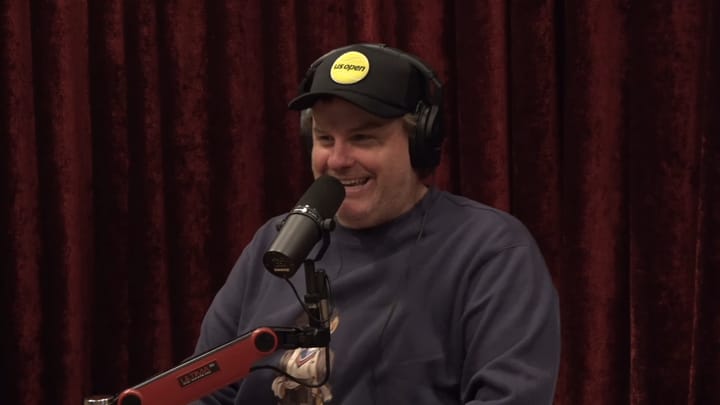These People Are Just Illiterate
On Theo Von's lexical struggles and Andrew Schulz's faux-ignorance about racial slurs. Also, Tim Dillon thinks Iran is behind the Minnesota assassin.
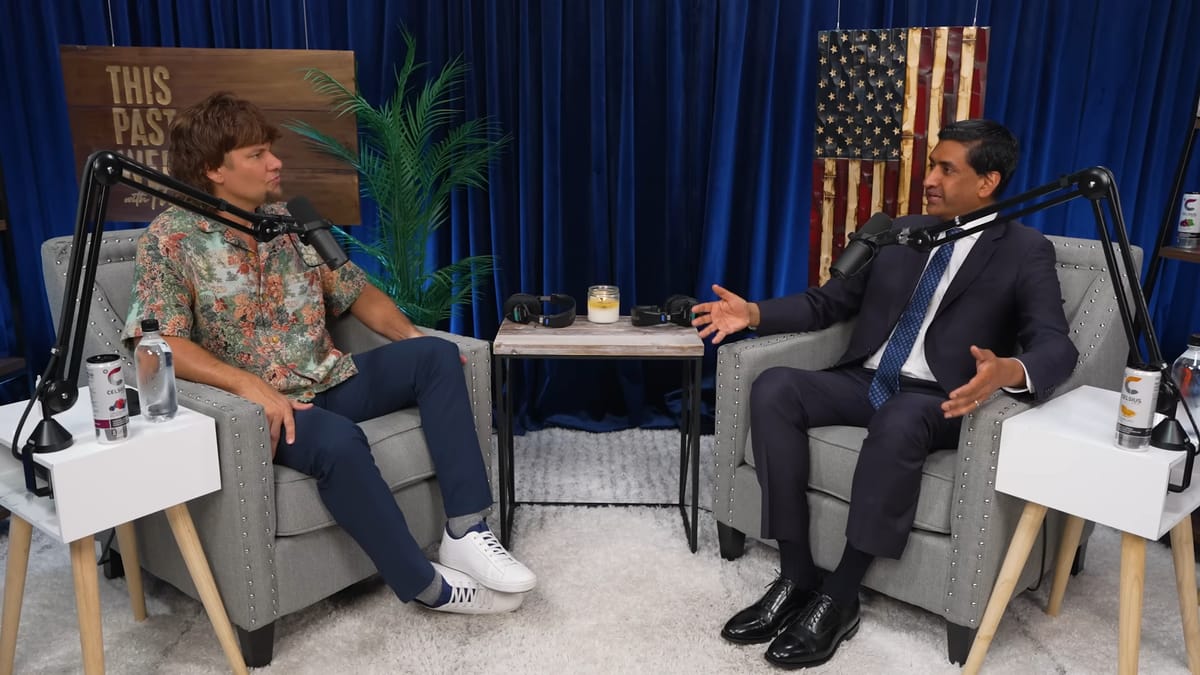
Perhaps an underappreciated problem with the current crop of comedians-turned-pundits-turned-political-influencers is that they are simply uneducated buffoons who don’t know what words are or how language works. The last two days have offered some compelling illustrations of this point. First I would like to share two brief excerpts of Theo Von’s conversation with Congressman Ro Khanna, the latest in the Democratic Party’s new effort to reach voters through Joe Rogan-adjacent podcasters. The following comes during a rumination on artificial intelligence:
Von: …Future generations, if they're raised under this cloud that's all-knowing, then would they almost at some point pray to this algorithm that it would give them a lottery ball of some sort of thing or something? Does that even—I mean it's kind of Ray Bradbellian or whatever. Bradwellian or whatever. or Brad Berwellian, but—does that make any sense to you, man?
And the following comes during a conversation about the genocide in Gaza, a subject that Khanna says Von has “been such a courageous voice on”:
Khanna: Trump can call Netanyahu, and he says, "Enough. We're not going to be giving you more offensive weapons to kill more civilians in Gaza. But here's what I'm going to do. I'm going to convene Saudi Arabia. I'm going to convene Jordan. I'm going to—"
Von: What does "convene" mean? Sorry.
Khanna: "Convene" mean bring them together.
Von: Okay.
Khanna: Bring them together. That's it. We're going to get the Arab states together.
I’m not trying to be mean simply for the sake of being mean here, but the obvious is worth mentioning: Theo Von does not know Bradbury from Orwell, and he does not know what the word “convene” means—just as he didn't know what “partisan” or “nonpartisan” meant until Tucker Carlson explained it for him. At the risk of sounding a tad elitist, I might suggest that these are things influential media figures ought to know, and it does not bode well that the information ecosystem supplanting Fox News for conservative Millennials and Zoomers is even stupider than Fox News.
Now let us turn to the New York Times’ frustrating new interview with Andrew Schulz, published today with the headline: “Andrew Schulz, ‘Podcast Bro,’ Might Be America’s Foremost Political Journalist.”
In your standup and on podcasts, there are slurs that you use. I’m thinking of one in particular. It starts with R and is commonly used to describe intellectually disabled people. And in the first minute of [Schulz’s 2022 standup special] “Infamous,” you use a derogatory term for Mexicans. Oh, yeah, but to the Mexican. They’re in on it.
But there are other derogatory terms that you don’t go near. I’ve never heard you use a derogatory word for a Jewish person. Really? I blame Jews for homophobia in the latest special.
But you don’t use the derogatory word. Which one are you talking about, the K one?
That would be the one. We call them the “small hats.”
How do you decide which ones feel OK and which ones don’t? Where is the line? The N-word I don’t do. The K-word I don’t really do.
But why certain ones and not other ones? That’s a good question.
If we accept they’re all derogatory. I don’t accept that. I think in reality, people are trying to protect people. The protection of people is a beautiful, benevolent thing. But sometimes it goes to the point where we’re making words harmful that aren’t harmful. For example, “Latinx.” What do you think of that term?
That’s a hard question. Have you heard of “fire retardant”? How do you feel about that word?
“Retardant” in that context means to slow something down. Should we make a different word for that?
A fire retardant is not a human being. Well, no, but the root word has a scientific definition that we have labeled an emotional, painful pejorative. We’re doing this thing, which is beautiful at its core, which is to protect the people who may not be able to protect themselves, but we don’t truly know if they are hurt by that. Now, if a parent ever said, “That word hurts me, and I want you to not say it,” I’m never going to say it in front of them. I don’t want to hurt you. That’s not my goal. But if they’re like, “I don’t want you to ever say it again in your life,” that’s not going to happen. There’s always going to be somebody offended by a word or opinion, so at a certain point, what do you do? You curtail how you speak completely so that you don’t offend people? Or do you just have your constitution and understand who you are as a person?
Here's a story I don't think I've told before: I met Andrew Schulz at the Comedy Cellar in January 2020. This was just before his meteoric rise to stardom during the pandemic; it was also in the wake of my vicious assassination of Shane Gillis, which Schulz said he’d been hoping to discuss with me. We had a long conversation, or at least it felt that way, during which he argued that the racist jokes that led to Gillis’s SNL firing weren’t all that bad, and the real racism was my assumption that Asian people need to be protected from naughty words. I tried to make the case that racial slurs and stereotypes reinforce white supremacy, but he simply did not understand how. Less than six months later, he released a special blaming the pandemic on dirty Chinese people.
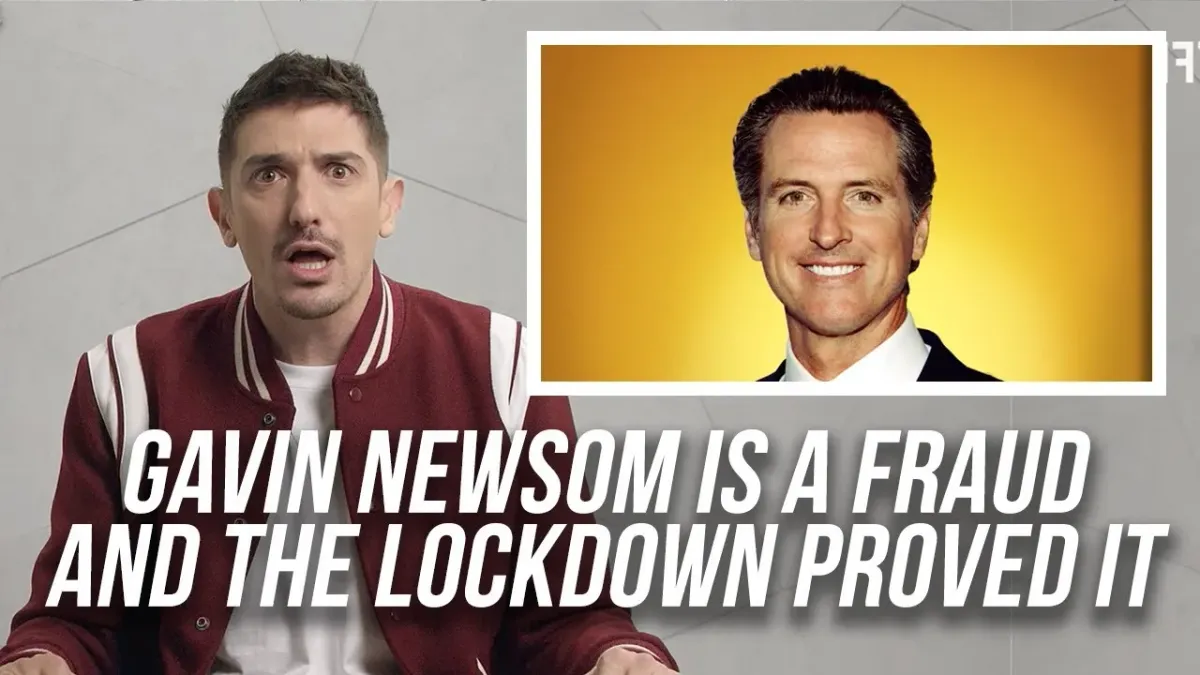
The case Schulz made to me that night in 2020 is roughly the philosophy he articulates here: that concern about racist language is a form of white paternalism towards marginalized communities. Obviously he does not consider this a hard-and-fast rule, or else he wouldn’t steer clear of the slurs he acknowledges steering clear of. (And obviously he’s playing ignorant about the fact that it’s very much possible to know if people are hurt by slurs; many people have told him as much.) Later in the interview, when the Times catches up with him a week later, Schulz tries to pinpoint the line between derogatory and non-derogatory slurs:
I was thinking about a lot of things from the conversation so far. Yeah. You had a good question that I thought about all week: You don’t say the N-word or the K-word, but you’ll say other words. I was like, I don’t think that that’s true. I didn’t know what to think of it in the moment. Then you brought up the R-word and how I feel comfortable saying that one. I really thought about it. This is me trying to retrofit my knee-jerk feelings on it: I think that what makes a slur bad is, it’s a descriptor plus organized violence. As humans, we’re like, That’s bad. But if we don’t remember that organized violence, or aren’t taught about it or it’s too far in the past, we start to feel like it’s not as heavy. I think that’s why our reaction is different when it comes to Latino slurs or Asian slurs. Where’s the organized violence?
There definitely was a spike in violence against Asian Americans with the pandemic. Does that count as organized violence? I feel like we’ll get stuck litigating word by word, and I don’t want to do that. I agree with you. I think we’re beyond the word police.
“Where’s the organized violence?” Well, gosh—you’ve got me there.
Before I let you go, here’s Tim Dillon suggesting, today, that the man who assassinated two Democratic lawmakers in Minnesota was working for Iran:
Dillon: This is a very important thing, obviously, to figure out why this guy did this and what his motive was.
Producer: Yeah, I don't think they have a manifesto.
Dillon: No, they're not going to have a manifesto. Can I just proffer a guess? I actually think that there's a very good chance he was working for Iran. They probably have cells in Minnesota, and he was most likely in one of them. That's just a general gut feeling I have. I'm not going to show people the evidence or how I've worked it out. I'm not going to show the work, as they would say in school, "Show the work, show the work. Did you cheat?" "No." "Show how you got the answer." I don't feel the pressure to do that. I think it makes sense, most likely, that he was with Iran... and hey, if you're going to kill our representatives for Iran, then you're out, buddy. And it's just one of those things.
It’s just one of those things.

